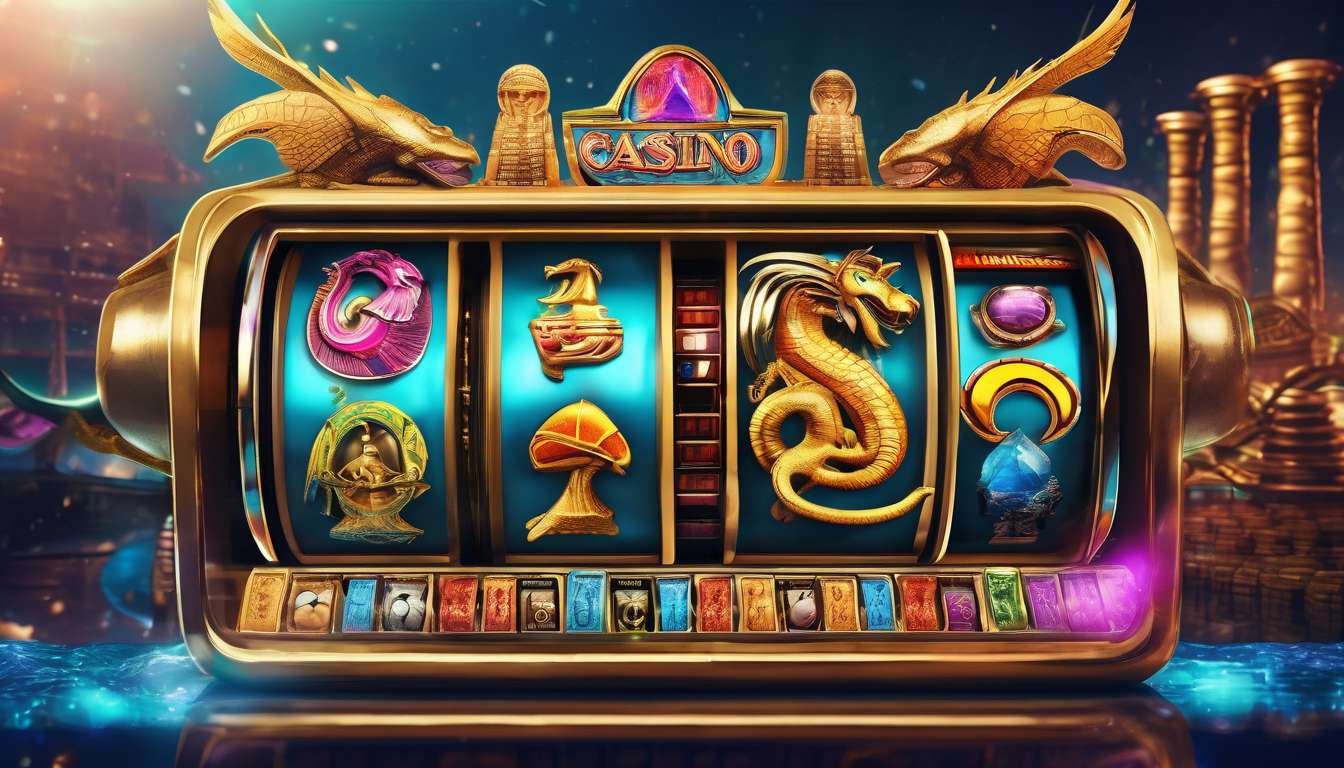The Allure of the Casino
We have always been fascinated by the allure of the casino, where the thrill of the game meets strategic thinking. Among the myriad of games, blackjack stands out as a unique blend of chance and skill, particularly when it comes to the intriguing strategy of card counting.
The Secret of Winning
As a collective, we’ve often wondered how some players seemingly defy the odds and walk away with impressive winnings. The secret lies in the mathematical theory behind card counting—a method that transforms the game from one of pure chance to a calculated endeavor.
Exploring Card Counting
Together, we will delve into the fascinating world of card counting, exploring:
- Origins – Understanding where and how card counting began.
- Mathematical Principles – Examining the mathematics that underpin this strategy.
- Player Utilization – Discovering how players apply these calculations to gain an edge over the house.
Demystifying the Strategy
By understanding the theory, we aim to demystify this sophisticated strategy and offer insights into how it reshapes the game of blackjack for those who dare to try it.
Origins of Card Counting
Card counting originated in the mid-20th century when mathematicians and gamblers began analyzing blackjack to gain an edge over casinos. As a community, we were drawn to the allure of the game, captivated by its blend of luck and skill.
The realization was profound: by understanding probability and developing a solid strategy, we could shift the odds in our favor. The quest for belonging in the world of blackjack was as much about mastering card counting as it was about connecting over a shared pursuit.
Imagine us, huddled over tables, passionately discussing the nuances of blackjack. We engaged in:
- Dissecting each hand
- Calculating probabilities
- Honing our strategies to perfection
It was a thrilling time, one where we felt part of something larger than ourselves.
Card counting became more than just a technique; it was a badge of honor, a testament to our dedication and intellect. Together, we transformed blackjack into a game where skill could triumph over chance, creating a legacy that endures.
Mathematical Fundamentals
Understanding the mathematical fundamentals of card counting is essential for us to consistently shift the odds in our favor. At its core, card counting in Blackjack revolves around probability. Each card dealt changes the deck’s composition, and with it, the likelihood of certain cards appearing in subsequent hands. By tracking these changes, we can make more informed decisions and enhance our strategy.
In Blackjack, every card carries a specific value that influences the game’s outcome:
- High cards (tens, face cards, and aces) generally benefit us.
- Low cards favor the dealer.
By assigning values to different card groups and maintaining a running count, we can estimate the deck’s composition and adjust our strategy accordingly.
When we understand these mathematical foundations, we foster a sense of community with fellow card counters. Together, we embrace the challenge and share the excitement of strategically turning the tide in our favor.
Let’s delve deeper into these principles and refine our approach.
Player Strategies and Tactics
In our pursuit of mastering card counting, we must employ specific strategies and tactics to effectively capitalize on our mathematical understanding. As a community of Blackjack enthusiasts, we recognize that probability is our ally in crafting a winning strategy. By keeping track of the cards that have been played, we increase our awareness of the deck’s composition, allowing us to make informed decisions with a higher degree of confidence.
Together, we adopt a strategy that involves adjusting our bets based on the count:
-
Favorable Count: When the count is favorable—indicating a higher proportion of high cards remaining—we raise our bets to maximize potential gains.
-
Unfavorable Count: Conversely, when the count is low, suggesting a deck rich in low cards, we bet conservatively to minimize losses.
Moreover, we practice camouflage techniques, ensuring that our tactics remain undetected by casino surveillance.
- By blending in with casual players and varying our play, we maintain our advantage without drawing unwanted attention.
Through these strategies, we strengthen our bond and skillfully navigate the Blackjack tables.
Impact on Odds and Probabilities
Understanding the impact of card counting on odds and probabilities transforms our approach to Blackjack, enabling us to make more strategic decisions. By tracking the cards that have been dealt, we can adjust our bets and strategies based on the changing probabilities.
When we know there are more high-value cards in the deck, the probability of hitting a Blackjack increases, giving us a better edge over the house.
Card counting isn’t just about keeping track of numbers; it’s about creating a sense of community among us as players who share this knowledge. We feel a connection when we understand the nuances of probability and how it influences the game.
Our collective strategy becomes more refined, allowing us to make informed choices that increase our odds of winning.
In this shared journey, we realize that card counting isn’t a guaranteed path to victory, but it certainly enhances our ability to play Blackjack with confidence and camaraderie.
Together, we navigate the game with a strategic mindset.
Evolution of Counting Systems
Over the years, we’ve witnessed a fascinating progression in card counting systems, each one refining our ability to track and capitalize on the deck’s composition. Initially, the idea was simple: keep a mental note of high and low cards. But as our understanding evolved, so did our strategies.
Early Systems and Evolution:
- Early systems like the Ten Count laid the groundwork.
- Edward Thorp’s Hi-Lo system revolutionized card counting by assigning values to cards.
- Thorp’s system allowed for more accurate calculation of probability, enhancing Blackjack strategy.
Community and Innovation:
In our community, these counting systems have provided a sense of belonging and shared knowledge. As the game evolved, so did our need to adapt and innovate.
- More sophisticated methods like the Omega II and Wong Halves emerged, each offering improved precision.
- We’ve embraced these tools not just as strategies but as a way to connect with fellow enthusiasts, all while maximizing our odds at the Blackjack table.
The Art of Card Counting:
Together, we’ve transformed card counting into a precise art form. Through collaboration and continuous learning, we’ve enhanced our skills and strategies in the ever-evolving game of Blackjack.
Application in Real Gameplay
In real gameplay, we seamlessly integrate card counting systems to enhance our decision-making at the Blackjack table. By doing so, we create a shared experience that connects us through strategy and probability.
Together, we observe the flow of cards, adjusting our bets and actions based on the count. This collective focus allows us to make informed choices that increase our chances of winning.
Card counting isn’t just about memorizing numbers; it’s about developing a holistic strategy that unites us as players. We rely on probability calculations to determine when the deck is in our favor, allowing us to adjust our strategy accordingly.
This approach not only improves our odds but also strengthens our sense of community as we support each other in our quest for success.
As we share these moments of triumph and learning, the camaraderie at the table grows, making Blackjack more than just a game—it’s a journey we embark on together, fueled by strategy and connection.
Legal and Ethical Considerations
While card counting itself isn’t illegal, we must navigate a complex landscape of ethical considerations and casino policies. As members of the Blackjack community, we often find ourselves at the intersection of probability and strategy, striving to master the game without crossing ethical boundaries. Casinos, after all, have the right to protect their interests, and they can ask us to leave if they suspect card counting.
Our shared passion for Blackjack often leads us to refine our strategies and enhance our skills. However, it’s crucial to remember that:
- While using probability to gain an edge is intellectually stimulating, it can also raise ethical questions.
- We must consider whether we are being fair to the casino and other players.
By engaging in respectful and transparent play, we can ensure that our beloved game remains enjoyable for everyone.
Let’s foster a sense of camaraderie, where we can:
- Share insights and strategies
- Create an inclusive environment for all Blackjack enthusiasts.
This approach helps maintain the balance between enjoying the game and respecting the rules and ethics of play.
Success Stories and Notable Figures
Throughout the history of card counting, a handful of players have achieved legendary status, inspiring others with their remarkable stories and strategies.
Among these figures, the MIT Blackjack Team stands out. Their mastery of probability and strategy transformed them from a group of ambitious students into a powerhouse in the world of casino gaming. By working together, they cracked the code of Blackjack, proving that collective effort and shared knowledge could lead to extraordinary success.
Another iconic figure is Ken Uston, who elevated card counting to new heights. His innovative strategies and relentless pursuit of perfection not only won him substantial profits but also cemented his place as a pioneer in the Blackjack community. His story resonates with us because it reminds us of the power of determination and intellect.
These success stories illustrate that, with the right strategy and understanding of probability, we too can aspire to achieve greatness in the world of card counting.
Let’s keep learning and growing together.
How can beginners practice card counting without going to a casino?
Practicing Card Counting Without a Casino
We can practice card counting effectively without the need to visit a casino by utilizing various methods:
Online Simulators and Apps
- These tools replicate the casino experience.
- They provide a safe and convenient environment to practice.
- Many apps offer different levels and scenarios to enhance skills.
Practice with Friends or Family
- Use a deck of cards at home.
- Create a relaxed setting for practice sessions.
- Experiment with different strategies together.
Regular Practice and Strategy Familiarization
- Consistent practice helps build confidence.
- Familiarizing with different strategies improves card counting abilities.
By engaging with these methods, we can significantly improve our card counting skills without ever stepping foot in a casino.
What are some common misconceptions about card counting?
Common Misconceptions About Card Counting
Some prevalent misconceptions about card counting are:
-
It’s Illegal: Many believe that card counting is illegal. However, in reality, as long as it is done using just your brain and without any external devices, it is legal.
-
Requires a Photographic Memory: Another misconception is that you need to have a photographic memory to count cards effectively. In truth, you don’t need perfect memory; there are simple systems available that make card counting accessible.
-
Guarantees Constant Wins: Some think that card counting guarantees constant wins. The reality is that it only slightly tips the odds in your favor. It is a challenging skill that requires practice and discipline, not a magic trick for guaranteed success.
How do casinos detect card counters, and what measures do they take?
Casinos detect card counters through various means:
- Monitoring betting patterns
- Reviewing security footage
- Using facial recognition technology
They take measures to counteract card counting, which include:
- Banning suspected card counters from the premises
- Adjusting game rules
- Shuffling the deck more frequently
These actions are part of their efforts to protect their profits and maintain the integrity of the games.
Conclusion
In conclusion, card counting is not just a game of chance, but a strategic application of mathematical principles that can tilt the odds in your favor.
By understanding the origins, fundamentals, and evolution of counting systems, players can enhance their gameplay and increase their chances of success.
While legal and ethical considerations must be kept in mind, the stories of successful card counters serve as a testament to the power of skill and strategy in the world of gambling.




